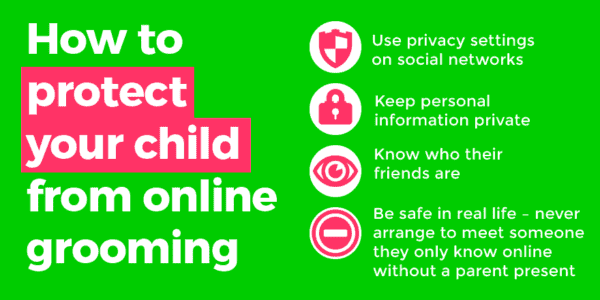What are the NCA’s concerns?
The NCA’s latest assessment reveals that there are at least *300,000 people in the UK posing a threat to children online. The released figures comes from intelligence before the coronavirus outbreak, but this number will continue to rise as the NCA revealed offenders are already discussing opportunities over online chat forums to abuse children during this crisis.
*Based on the NCA’s developing understanding – from a variety of sources.
What charities and organisations are doing to help
- Internet Matters – We have a host of topics on child online safety – including online grooming and sexual abuse. You can read our advice and resources and learn how to minimise risks, develop children’s critical thinking skills and more.
- The NCA are urging children, parents and carers to ensure they know how to stay safe on the web – and launched their #OnlineSafetyAtHome campaign through its education team at CEOP.
- ThinkuKnow is creating 15-minute activities for parents and carers to do with their children – and new activities will be launched fortnightly.
- The NPCC (National Police Chiefs’ Council) work directly with the NCA and will be maintaining a focus on those who want to commit harm to children and work with tech companies to ensure they play their part in making the internet as safe as possible.
Children with SEND (Special Educational Needs and Disabilities)
Research from the NCA revealed schools for children with special educational needs and disabilities recorded nearly 10 times the number of safeguarding concerns of a sexual nature than other residential schools.
Also, a study by the Independent Inquiry into Child Sexual Abuse (IICSA) found the most common concerns raised of a sexual nature were online and peer-on-peer abuse. They highlighted the challenges of managing children’s online safety and peer relationships.
Where to go for help
Report it! If you suspect a child is a victim of online sexual abuse, report it immediately to CEOP or contact the police. You can also report a problem by visiting our report issue page.






